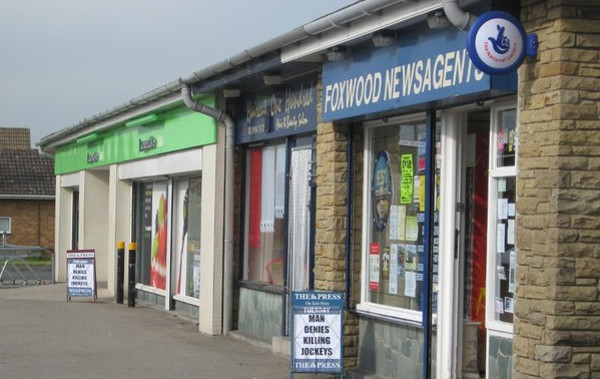All You Need To Know About Buying A Newsagent, Post Office, Corner Shop Or Convenience Store

This is in response to a client of mine who was considering packing in the day job in the city and moving to the country to buy a newsagent type business. I document below the discussion and advice I gave him and his wife which I hope will help other investors considering such a business purchase.
First, appreciate your position
Not a lot of people want to buy newsagents and convenience stores today. They know about the long hours, lack of flexible working etc.. and that there are many, better businesses around.
Twenty years ago things were different and demand was much higher. People who had a bit of money and wanted to leave the rat race and run their own business often gravitated towards the likes of cafes and corner shops ie. businesses that needed no special skill or qualifications.
That’s not so today. eBay shops, Amazon FBA businesses and other online businesses don’t require any special training and offer extremely flexible hours that can worked around taking care of children / elderly relatives. Further, these businesses are easy to relocate. You can buy an online business that operates from anywhere in the UK and run it from your current address.
Should life or circumstances require you to move, you have the option of taking the business with you to the heart of Norfolk or a village in Yorkshire where everything, including residential property, is much cheaper. And when you want to sell the business, you’re not restricted to selling to a local. As you can sell to a buyer based anywhere in the UK you can get a much better price when you choose to exit.
People prefer to go for businesses like those and there’s not a great deal of demand for news agencies nowadays.
But you still want to buy a newsagency, right? Fair enough.
You may get some posturing from the vendor about there being lots of potential buyers for his business, but the chances are that you are the only one! You’re his last hope. If he feels trapped in his business, you’re probably his final chance to break free.
You are therefore in a great position to drive a hard bargain. And you need to drive a hard bargain because this is going to cost you a lot more than you think (and you need to keep some cash in reserve to pay stamp duty, pay for a solicitor to draw up the legal documents to buy the business, pay deposits to various supplies etc etc. Later you’ll also need funds for working capital – or a “float” - funds to effect repairs, money to do some renovation, cash to advertise... and much more)!
Lots of things to be considered carefully
Post Office: Note that if the business includes a post office, Post Office Ltd need to approve the new owner to run a post office in the premises. There’s no guarantee that they’ll approve you. Some post offices are designated as "community branches" i.e. they are vital to the local community (usually in far flung, rural areas). They are not subject to conversion to the new operating model for post offices and they get paid a small fixed fee from the Post Office but , beware, this is funded by the government and the funding could be stopped in the future! So, don't count on that money long term.
You need to also get your head around a lot of terminology such as Crown branches, Scale Payment post offices (sub POs), Post Office Mains, Post Office Locals, Post Office Local Pluses etc, and learn about things such as the Network Transformation Programme.
Crown branches are directly owned and operated by the Post Office (but you can apply to be a franchise partner). Post Office Locals offer the lowest range of services to the public, Local Pluses offer more and Main POs offer a wide range. Locals and Local Pluses generally operate to the same hours as the convenience store or corner shop does.
Camelot / Lottery Tickets: A licence to sell lottery tickets, and the lottery ticket terminal, do not automatically pass to the new owner of the business. When a business changes hands, the licence to sell lottery tickets expires.
The new owner needs to apply to Camelot for a new licence and the application is treated as a completely new application. If there are other applicants nearby who’ve been on Camelot’s list, Camelot may decide that their position / opening hours / other attributes are superior to yours and give them the licence instead of you.
Losing lottery ticket sales can be a serious blow as customers who come in to buy lottery tickets often spend money on other items as well.
Other terminals: Similarly with other terminals such as mobile phone top up terminals and even the EPOS/credit card PDQs. To be able to take debit cards and credit cards you may have to apply for a new merchant account (the only exception is if the business is already set up as a Ltd company and you are buying the shares of the business rather than the assets – read about the difference here).
Liquor licence: If alcohol is being sold on the premises you need to apply for a new licence to permit you, the new owner, to sell alcohol. This involves going on a short course.
Lease: If it’s a leasehold property, the lease does not automatically transfer either. The landlord has to grant you a new lease (or there may be the possibility to get a sub lease).
The existing lease will probably have what’s called an assignment clause ie. a clause giving the leaseholder the right to assign the lease to a new owner, but the chances are that the contract will also require the leaseholder to get the landlord’s permission first and get the landlord’s approval of you as the new tenant.
And there is no law compelling the landlord to agree. They often don’t. Or they drag the matter out for months / years! Often they insist on you coming up with a large deposit and/or signing a personal guarantee. They may even use this as an excuse to up the rent.
There have been cases where people shelled out money to buy a newsagents only to discover later that they couldn’t get a lease on the property (or couldn’t transfer the lease) and had to vacate the premises as a result!
There are three types of commercial leases. As a buyer you need to know which one is best for your circumstances. It is not a good idea to sign any lease without taking proper legal advice.
News Distributors & other suppliers: You’ll probably have to open accounts with the firms who distribute newspapers and magazines, and open accounts with several other suppliers. Many of them, especially the news distribution firms, will require a deposit as they have no history of trading with you and don’t know you from Adam.
The size of the deposit will vary but it can sometimes be a fairly hefty sum.
Warning: Taking a lease on a commercial property is fraught with problems. Example: Let's say a newsagent has gone bust. You step in and sign a lease for that property and open a newsagency. You have no connection with the owner of the previous business that operated in those premises, right? But you'll have full legal responsibility for the previous owner's employees and you'll have to employ them on the same terms they had before. If you don't, you'll have to pay them redundancy (Under the TUPE Act)! This may sound illogical but it's true.

Beware those accounting numbers & records - they lie
Here’s the funny thing with newsagents - they never give you the number that matters. They’ll quote their weekly takings. Or their annual turnover. Or their gross profit.
None of those matter!
What you want is the net profit … the amount that you’ll actually be taking home every week / month / year. As they say, turnover is vanity, profit is sanity.
Get accounts covering several years: You need to have full business accounts covering at least the last 3-5 years. This is so that you know the average profit the business is making and are not basing all your expectations on one unusually good (or bad) year. Note also that accounts submitted to Companies House and elsewhere are often abbreviated versions of the accounts and not the full final accounts (complete with Profit & Loss statement).
Note also that salary is not the same thing as profit: If the business is making £22K a year in net profit, but if the P&L account doesn’t show a salary the owner has paid himself, then it’s not a profitable business. He’s working probably 12 hours a day, six days a week. Given all the hours he’s devoting to the business, that £22K works out to less than minimum wage!
The business needs to generate enough to pay at least a minimum wage for the time spent PLUS a profit because, well, you bought a business, not a job.
Remember, the business needs to generate a salary as a reward for time spent and a profit as a reward for the capital you’re investing and risk you’re shouldering. You may take all of it out in the form of a dividend at the end of the year rather than a monthly salary, or you may take a small amount on PAYE to benefit from your personal allowances, but however you construct it for tax purposes your total benefits need to be enough to have covered both a salary and profit.
Calculation Challenges: Get the figures checked out by a professional who knows where the fiddles typically are in this specific type of business. For example, newsagents often include Lottery takings in their turnover. However, the Lottery takings are not your money, you’re collecting this on behalf of Camelot. Your share is just 5% of those takings and it’s only that 5% which should be included in the turnover.
Ignore cash in hand: Vendors sometimes claim that they’ve made more profit than shown in the books. Strictly avoid getting into any discussion about cash-in-hand! If a number can’t be proven in the books then do not pay for it!
No, don’t get tempted to include these “cash” figures in your calculation. Whether you intend doing a bit of cash-in-hand yourself, or not, make it clear to the vendor that you will not take into consideration any off-the-record receipts or earnings.
Hidden costs: What is the seller not paying for? For example, does he not have business insurance? If you’re going to be properly insuring the business you need to deduct the cost of premiums from the profit currently showing.
Does the seller’s partner, or other family member, occasionally help out in the shop? If they are not getting paid for that work then you need to deduct the amount it would cost you to hire someone to come and assist for those hours.
There are often several other such hidden costs and it’s up to you, the buyer, to find them..

Due diligence checks
Apart from getting the accounts verified by someone who knows the industry - and knows where skeletons are typically hidden ie., not your average high street accountant - there are numerous other checks you need to conduct.
If you have a solicitor acting on your behalf s/he may conduct some of the checks, but they will not flush out all the potential risks and dangers (of which there are many). It falls upon you to go through everything with a fine tooth comb.
It’s caveat emptor or Buyer Beware. Buying a business is a B2B (Business To Business) transaction and you do not have any of the protections that the law gives consumers. There is no right to a cooling off period, refund or change of mind. Discover flaws and/or accounting irregularities after the sale …. and there’s probably nothing you can do about it except swallowing the resulting loss.
Some of the things you might want to check:
Hours: Don’t accept the owner’s claims on the number of hours he works. Owners often under quote the real hours and fail to include all the time spent ordering stock, doing accounts and catching up with sundry other tasks. Verify the hours yourself and form your own opinion on how many hours per week are required.
What will you have to outsource? Are there functions currently being provided by the seller which you can’t provide? For example, if the current owner is doing his own payroll for employees, do you have the skills and tax/PAYE understanding to provide the same services, or are you going to have to outsource these tasks? Outsourcing costs money and you need to deduct costs like these from the current profits to get a fair idea of how much the business is likely to earn once it passes into your hands.
Real reason for sale: Ignore the reason provided. There’s usually another reason as well! And you need to find this other reason. Does the seller know of a Tesco Express being planned in the vicinity? A major competitor like that would sound the death knell for your business.
But that’s not the only risk. Perhaps the council is planning on pedestrianising the street or removing parking outside the shop. Such changes could severely impact on your business There could be numerous other reasons.

Valuations, appraisals & price
There are no hard and fast rules about valuing a news agency or cornershop. There’s no multiple of turnover, multiple of profit type calculation. There is no pre-defined element of goodwill that needs to be included. Those are all valuation myths.
You pay whatever you can negotiate. You pay whatever you can get away with. It’s as simple as that. And it helps to have a savvy negotiator on your site – someone not just good at negotiating but expert at negotiating business acquisition transactions!
Sellers often sell for a fraction of their original asking price because they know there isn’t a lot of demand for news agencies / corner shop / general store kind of business and they need to take what they can get. You need the strategy and advice to ensure you get maximum benefit from this unique advantage you have.
Having an expert on your side is particularly important if the seller is being represented by a business broker or a business transfer agent. However nice and helpful the broker may seem, remember that he is paid by the seller, not you. He has only the seller’s interest at heart and he knows how to play you to get the best price for his client; he has probably done it a hundred times before whereas this may be your first such transaction!
You need someone with the experience who can not just negotiate the price but advise you on strategy. Did you know, for example, that you can often negotiate to pay part of the price in the future ie., get a free loan from the seller in the form of what’s called a “seller’s note”?
Stock at Value: The price for these businesses is sometimes often quoted as £x plus SAV or Stock At Value. I recommend never paying for stock at value but
a) doing a proper and detailed stock take yourself ie. not accepting the seller’s word or the seller’s calculations;
b) calculating the total spent to buy that stock – yes, you want cost price, not retail price and
c) not paying that full price but offering about 60% - 70% of that price to buy all the stock.
Why not pay full price for the stock? Multiple reasons. For one, there will be some stock that is “dead” and not selling. There will be other stock that you wouldn’t necessarily have bought if you were starting a new business. There will be some items that reach their expiry dates before they are sold.
By taking the stock you are doing the seller a favour as he can’t very well offload all that stock elsewhere. And a good negotiator will get you a discount on the price of the stock.
Valuation based on what the seller invested in the business: Sellers sometimes base their asking price on what they invested in the business, or how much they paid to acquire the business. But what they paid is not your concern. The seller may have overpaid because he did not have a professional to negotiate the price for him, or simply because he is foolish. You should not have to pay for his mistake.
Conclusion
If you need assistance with any aspect of this purchase, use my contact page to get in touch - I can introduce you to the right accountants / solicitors who specialise in business sale transactions. If you need other assistance, say with strategy advice on negotiation, that's available too.
Prices: Specialist legal, accountancy and other consultancy in this field start at around £100 - £150 per hour.
